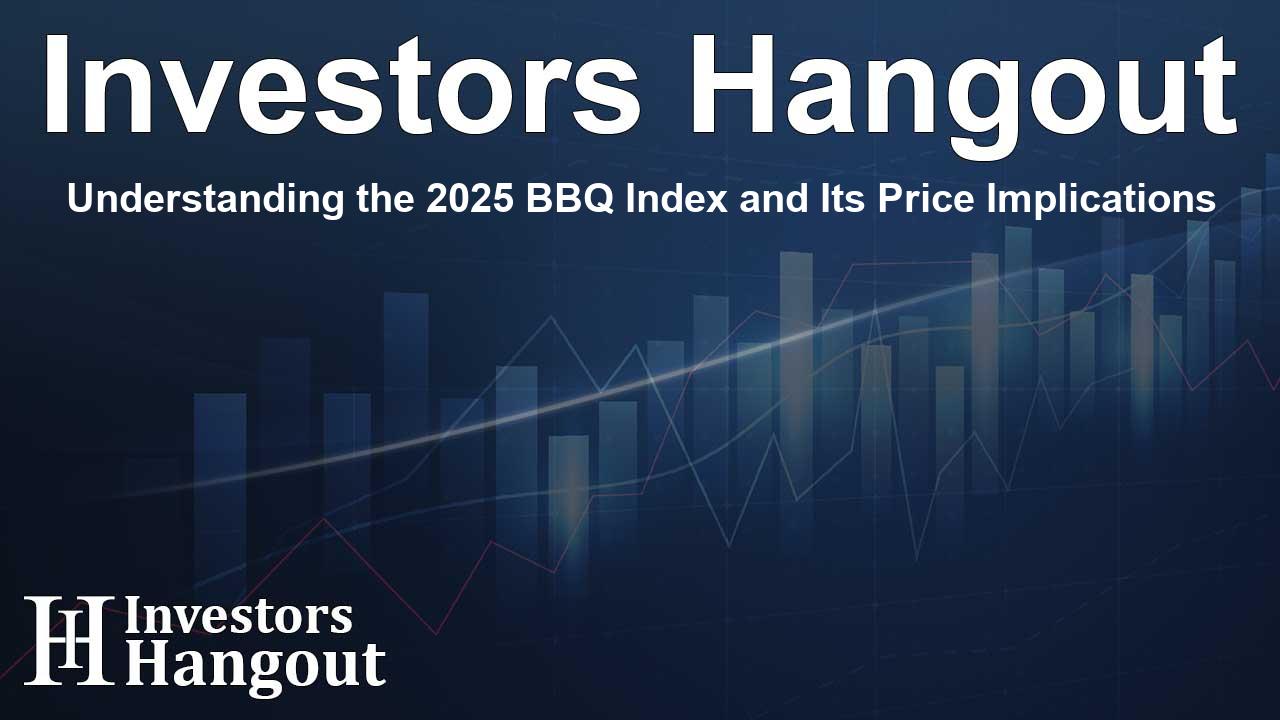Understanding the 2025 BBQ Index and Its Price Implications

Analyzing the 2025 Rabobank BBQ Index
As the grilling season approaches, the much-anticipated Rabobank BBQ Index provides vital insights into the prices of popular BBQ staples. This yearly assessment reflects the changing landscape of food pricing and consumer behavior, highlighting how specific economic conditions affect BBQ costs.
BBQ Index Findings
The BBQ Index reveals that hosting a traditional summer BBQ for ten people is 4.21 percent more expensive this year compared to the previous one. Despite economic uncertainties, the increase primarily stems from domestic factors rather than global trade disputes. Rabobank analysts believe that understanding these trends can help consumers make informed choices when planning their summertime gatherings.
Methodology Behind the Index
The Rabobank BBQ Index is based on a typical BBQ scenario involving a group of ten adults sharing a meal. The index accounts for the average consumption of various foods and beverages, including cheeseburgers, chicken sandwiches, chips, drinks, and dessert. The analysis uses data from the Bureau of Labor Statistics to ensure accuracy and relevance.
Rising Costs but Favorable Supply
Though prices have indeed risen for many BBQ elements, the essential ingredients have not been adversely affected by inflation as much as other goods. For instance, while egg prices have fluctuated, many BBQ components maintain stable pricing due to a robust domestic supply chain. This stability allows BBQ enthusiasts to enjoy their favorite dishes without the heavy burden of trade-related costs.
Factors Improving BBQ Costs
According to Tom Bailey, a Senior Consumer Foods Analyst at Rabobank, U.S. consumers still spend significantly less on food compared to many other nations. However, the gap is narrowing—indicating that consumers need to be more strategic about their food purchases. The 2025 BBQ Index serves as a benchmark for understanding these dynamics.
Beef Pricing Trends
Senior Beef Analyst Lance Zimmerman emphasizes that the domestic beef supply remains robust, which could alleviate some concerns regarding rising prices. Nevertheless, the cattle herd has been declining since 2019, leading to ongoing supply challenges. Even amid these shifts, Americans' demand for beef continues, keeping prices elevated.
Beer Consumption and Pricing
In the realm of beverages, Rabobank Beverage Analyst Jim Watson notes that beer pricing during the BBQ season can remain unaffected by tariffs, thanks to largely local supply chains. Major breweries often adapt by shifting the production of their brands within the U.S. to circumvent import issues, which helps maintain more consistent pricing for consumers.
Conclusion: The Takeaway from the BBQ Index
The 2025 BBQ Index underscores an essential truth: while prices are increasing, the primary drivers are the dynamics of supply and demand rather than external trade influences. This unique alignment of domestic supply supports a seemingly secure BBQ experience for summer cooks, enabling them to indulge in traditional fare without significant worry over trade war ramifications. For a deeper understanding of the BBQ Index, insights on dairy, poultry, baking, and produce are available through Rabobank's analytical endeavors.
About Rabobank
Rabobank Group stands as a leader in global financial services, offering extensive banking, leasing, and real estate services in multiple countries. Founded over a century ago, it has evolved into one of the largest banks worldwide, boasting over $678 billion in assets.
RaboResearch Food & Agribusiness Insights
RaboResearch Food & Agribusiness employs around 80 analysts who specialize in various sectors within food and agribusiness. Through their expertise, they contribute significantly to the ongoing dialogue about trends and developments in these essential industries.
Frequently Asked Questions
What is the Rabobank BBQ Index?
The Rabobank BBQ Index is an annual report that assesses the costs associated with hosting a typical summer BBQ, providing insights into food price trends.
How much more expensive is a BBQ this year compared to last?
A BBQ for ten people is 4.21 percent more expensive this year than last year, according to the BBQ Index findings.
What factors are driving the increase in BBQ prices?
Pricing increases are primarily driven by domestic supply and demand factors rather than international trade disputes or tariffs.
How does the BBQ Index methodology work?
The BBQ Index is calculated based on the average consumption of food and beverages for a mixed group during a typical BBQ event.
What does the increase in beef prices signify?
Rising beef prices reflect continued consumer demand, against a backdrop of decreasing beef supply due to lower cattle herd sizes since 2019.
About The Author
Contact Ryan Hughes privately here. Or send an email with ATTN: Ryan Hughes as the subject to contact@investorshangout.com.
About Investors Hangout
Investors Hangout is a leading online stock forum for financial discussion and learning, offering a wide range of free tools and resources. It draws in traders of all levels, who exchange market knowledge, investigate trading tactics, and keep an eye on industry developments in real time. Featuring financial articles, stock message boards, quotes, charts, company profiles, and live news updates. Through cooperative learning and a wealth of informational resources, it helps users from novices creating their first portfolios to experts honing their techniques. Join Investors Hangout today: https://investorshangout.com/
The content of this article is based on factual, publicly available information and does not represent legal, financial, or investment advice. Investors Hangout does not offer financial advice, and the author is not a licensed financial advisor. Consult a qualified advisor before making any financial or investment decisions based on this article. This article should not be considered advice to purchase, sell, or hold any securities or other investments. If any of the material provided here is inaccurate, please contact us for corrections.
